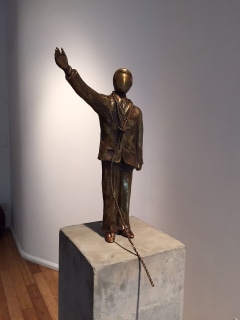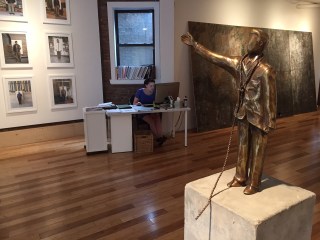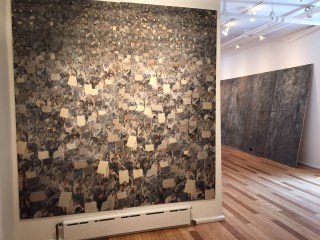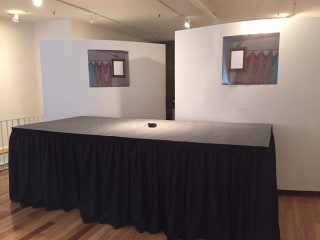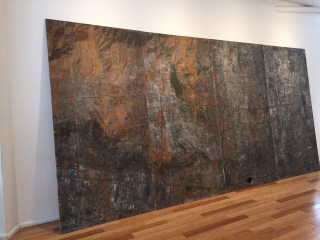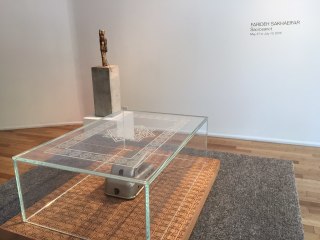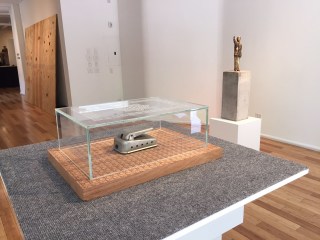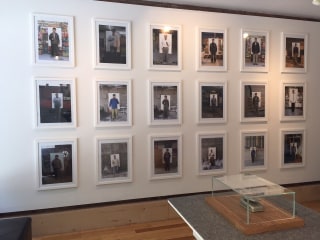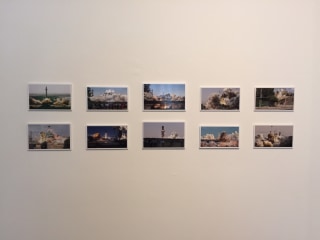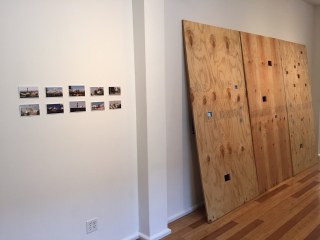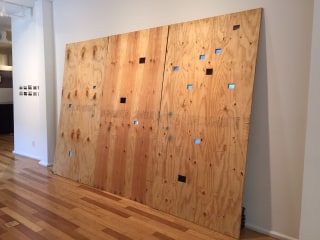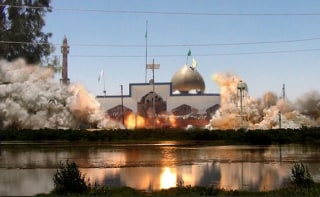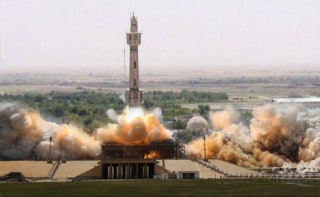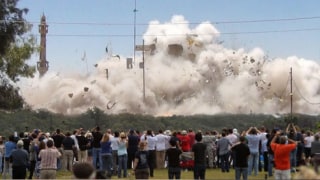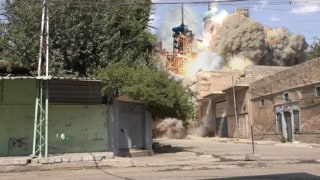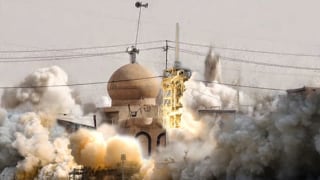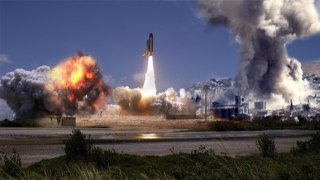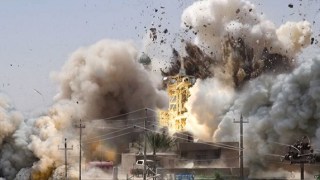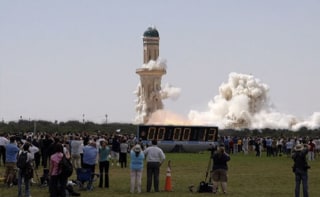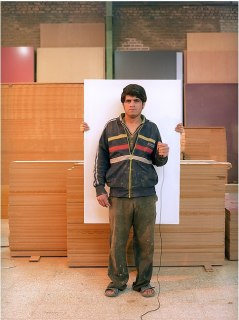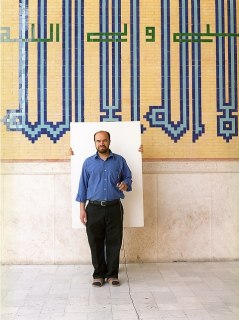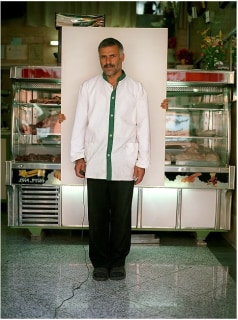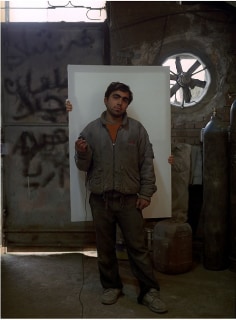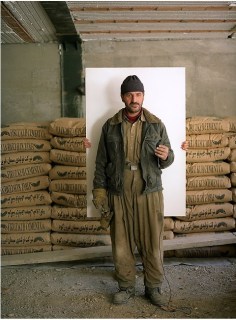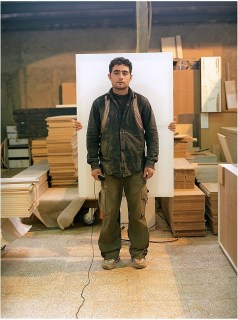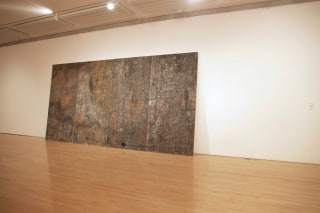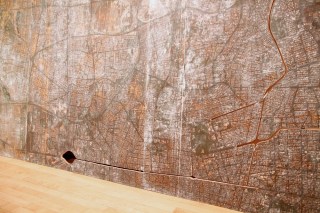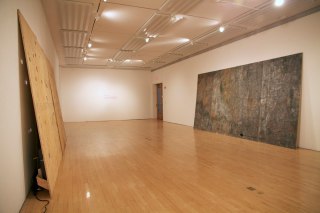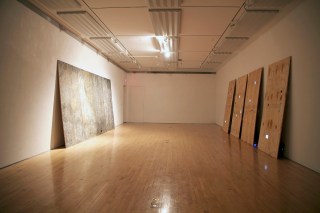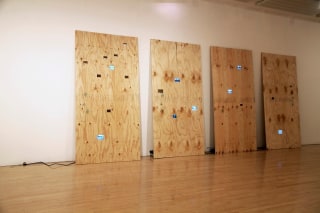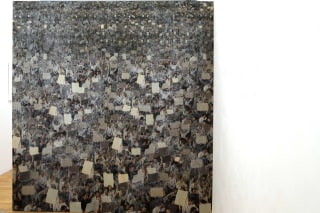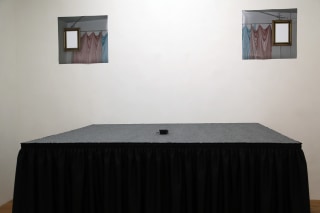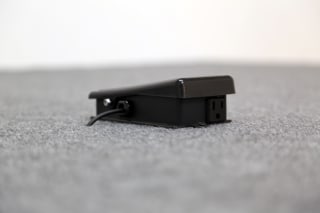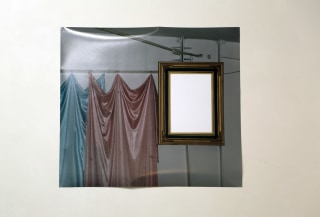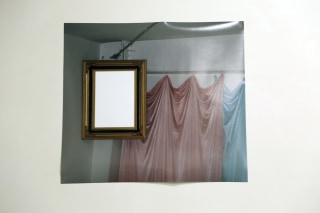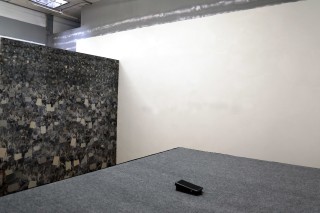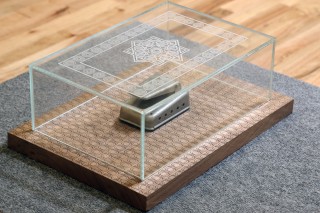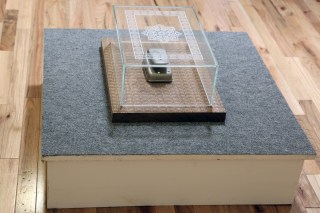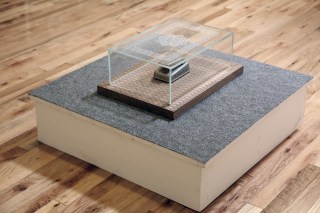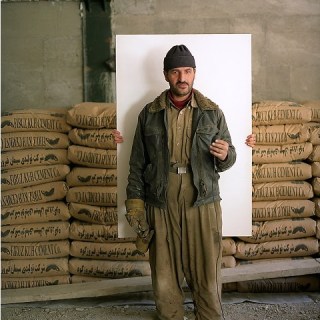
“The oppressed, having internalized the image of the oppressor and adopted his guideline are fearful of freedom. Freedom would require them to eject this image and replace it with autonomy and responsibility.”
― Paulo Freire, Pedagogy of the Oppressed, 1968
In Sacrosanct, Farideh Sakhaeifar's first solo show with William Holman Gallery, works in photography, sound installation, and video are used to explore the social injustices and political unrest in her native country of Iran and around the world. Inspired by Paulo Freire's 1968 book Pedagogy of the Oppressed, the exhibition challenges propagandized images and censored narratives through the artist's disruption of these systems.
Sakhaeifar writes, "To maintain totalitarian power, it is necessary to control the people not only through terror and surveillance, but also through manipulating beliefs and, in this case, religious behaviors." The repetitions of religious and political slogans, which orally or visually praise the ruling elite, have been used to reinforce conservative ideologies within the public.
The installation Pedal mimics leaders' totalitarian control over the public. An 8 x 16 foot wall collage composed of found images shows the faithful gathered in a crowd to listen to Iran's Supreme Leader. In front of the collage, a foot pedal rests on an elevated, carpeted stage. When the pedal is compressed, a recording of applause sounds from the crowd, reflecting the theatrical dynamic between power and the people. Sakhaeifar has erased the images of the Leader in the posters held by the crowd. The blank pictures embody the hollowness of idolatry, and the superficiality of forced and propagandized events around the world.
In Toppled, a bronze sculpture of a leader is shown with a noose around his neck, suggesting the transitional moment in which the statue of a leader is destroyed by the public. Sakhaeifar was inspired by images of the toppled statues of Saddam Hussein in Iraq after the US invasion, Gaddafi in Libya, Nicolae Ceaușescu in Romania, as well as the long history of others. In this moment, power is temporarily dispersed, and the simmering rage and frustration of the oppressed boils over. Public frustration becomes directed in the only way possible - towards the idolatrous imagery and propaganda of the leadership and its destruction.
Tehran a loud 2011, an installation compromised of eight sheets of plywood, explores the preservation and destruction of memory by the ruling class. A map of Tehran has been transferred to two pieces of plywood; cut from the wood are the locations of protests that took place in Tehran in 2009. Sakhaeifar has eradicated these spaces from the physical map, symbolizing the government's denial of the protests and its attempt to manipulate memory. On the opposite wall, a 9-channel video shows each location with silent, empty streets. The government had erased any evidence of the violent uprising; in the videos of the following days the only clue of trouble is the uncanny absence of people.
The destruction and manipulation of history reappears in Sakhaeifar's series of ten photographic collages entitled NASA/ISIS. The series juxtaposes found images of ISIS bombing historic monuments and mosques in Iraq, with images of NASA launching of rockets into space at Cape Canaveral. The series alludes to the voyeuristic relationship between the US and Middle Eastern countries, where sanctions, oppression, control, and war have been a constant presence.
A direct response to daily life, Sacrosanct explores the challenges of these realities. Sakhaeifar looks through the forms of ethnic, political, and cultural control in order to visually express the struggle for autonomy and responsibility.

